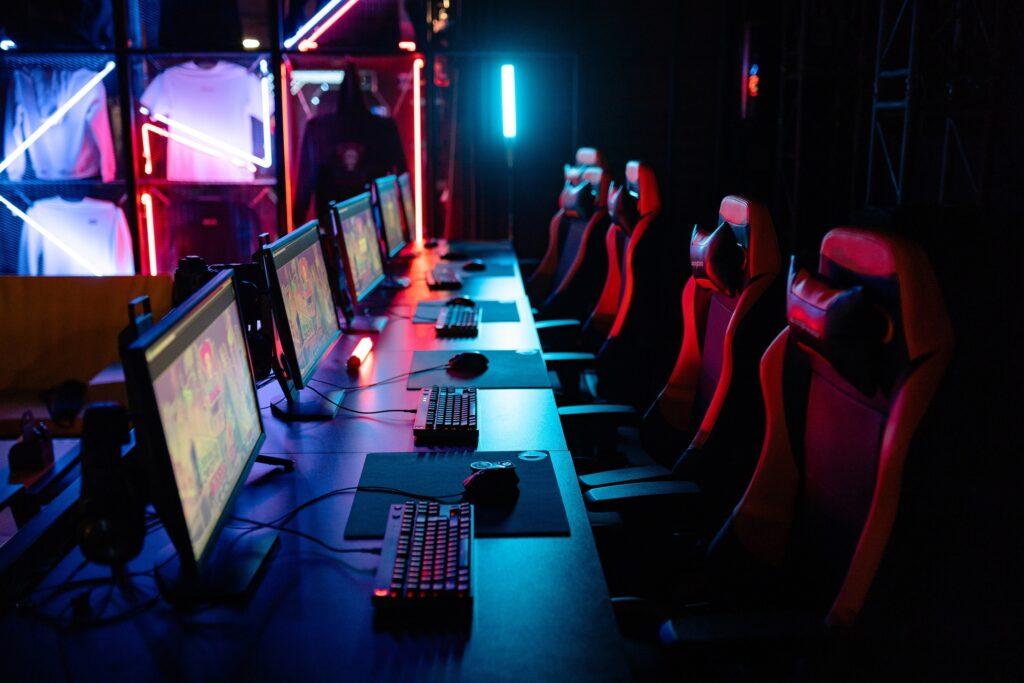Picture a typical gaming chair. Tall, flared seats, flashy colours, a couple of pillows for support and a logo behind the head. The brand could be DXRacer, Secretlab, noblechairs or a variety of other companies, but generally, the design stays similar. The chairs are ubiquitous across esports stages, Twitch streams, and team facilities.
But despite their ubiquity, many gamers don’t feel like these chairs are the best for their posture, and doctors agree.

“You can sit in an IKEA kitchen chair and not have back pain if you have proper posture,” said Dr. Lindsey Migliore, a licensed doctor who provides health tips for gamers, when speaking with Esports Insider. “But for most of us, it’s hard to remember to have good posture. Chairs that set you up with incorrect posture like racing chairs can lead to bad ergonomics. So, while the most important part is self-awareness and correcting posture yourself, chairs definitely play a part.”
The racing chair is a common name given to gaming chairs as they share similarities with the chairs often found in race cars. However, those same characteristics that make chairs great for race cars don’t translate over to gaming.
“Racing chairs were designed for race cars,” Dr. Migliore explained. “You sink into them so when you make a sharp left turn, the seat keeps you in place. The goal was to keep the driver safe and secure. That’s the opposite of what you want when you are sitting at your desk. You want to be able to readjust your posture, you want to be able to sit up straight. Something as simple as the hip height and knee height can have long-lasting effects.”
So, if other chairs promote better posture, why does seemingly every Twitch streamer have a gaming chair?
“Chairs are objectively one of the most boring [products] on the planet,” said Erik “DoA” Lonnquist, a freelance esports commentator who left the Overwatch League desk a few months ago, told Esports Insider. “So a chair company tried to figure out how to open up the gaming demographic and the answer was to just make the chairs look cool. And they succeeded. It looks cool to be sitting in a race car style seat, the aesthetics are really cool.”
But every year gaming pushes further into mainstream culture and the gaming generation gets a year older. For a 16-year-old Call of Duty player, posture may not cause any backaches. Now, for the gamers who have been grinding into their late 20s, suddenly posture and health become more important.
“Ultimately, health is more important than coolness,” DoA continued. “I’m in my late 30s and suddenly a chair that looks cool isn’t quite as awesome as a chair that doesn’t make you end each day in horrible pain.”
Esports companies in the last few years have focused more on player health. Every new training facility touts how it will help players train longer. In Complexity Gaming’s GameStop Performance Center, player health was a crucial aspect of the new facility. Jason Lake first founded Complexity Gaming in 2003, now it’s one of the longest-running esports organisations in the world.
“I break down esports history into three segments,” Lake, the Founder and CEO of Complexity, told Esports Insider. “Esports 1.0, gamers lived in their moms basements and saw teammates at a few tournaments a year. Esports 2.0 was the dawn of the gamer house era where we started taking things more seriously. But the problem was, it just wasn’t healthy living with coworkers all the time.
“Now we are entering Esports 3.0. Our gamers live in luxury apartments near the headquarters, they get nutritious food at the Dallas Cowboys training table, we get medical services done by the sports hospital across the street.”
RELATED: Complexity Gaming hires Ashley Chalk as Vice President of Partnerships
The steps being taken at Complexity Gaming are also happening at other esports organisations, but Lake took the focus on player health a step further by partnering with Herman Miller. A legacy furniture brand, Herman Miller has been supplying offices with chairs for decades before esports ever existed.
“Herman Miller has 100 years in this space and has experience in building some of the healthiest office chairs anywhere in the world,” said Lake.
Now, that experience doesn’t come cheap. The lowest price for any Herman Miller office chair is $495 (£400). The “Embody” chair that Lake was sitting in during this interview retails for $1,595 (£1,288). That’s just slightly out of the average gamer’s budget.
For comparison, the most expensive chairs on DXRacer and Secretlab are about $800 (£646), but most gamers are sitting in the $300 (£242) models. Still not cheap, but certainly a bit more manageable. Secretlab declined to comment when asked by Esports Insider.

“Some of the Herman Miller products are obviously more than the average gamer will want to spend,” Lake said. “We are doing some research with Herman Miller to design an ergonomic chair that’s more suited towards the average gamer’s price point.”
Beyond just the price, there’s also the marketing to consider. Gaming chairs are one of the few commonalities across all of Twitch. From Dota 2, to Valorant, to Animal Crossing, most streamers will be using a similar chair.
“Gamers have been sold a false narrative. They’ve been deceived,” Lake said. “A clever marketer had a lot of these extra racing chairs and decided ‘Hey, if I call these gaming chairs, everyone will start buying them.’”
Gaming chairs were first to the scene and carved out a lucrative niche. The chairs generally look sleek. Add in partnerships with major esports companies and further customisation and the appeal to gamers is obvious. Secretlab has chairs branded with everything from G2 Esports, to Game of Thrones, to Overwatch. Still, when given a chance to comment on the marketing and health benefits of its chairs, Secretlab declined to comment.
While the chairs aren’t ideal for posture, the marketing tactics show how to connect with gamers. For office chair brands to truly take over some of the gaming chair market share, they will have to focus on tailoring the products for gamers.
“It just comes down to education,” Lake explained. “Herman Miller is working with Complexity and I am sure they will be working with different groups in the future. Gamers are intelligent people and once education starts to proliferate we are going to see more gamers investing in a chair that lasts years and years rather than recycling the same old gamer chair junk.”
Last month, Herman Miller partnered with Logitech G, the company’s second esports move. Herman Miller’s entrance into esports is part of a larger battle of endemics vs. non-endemics. Franchise spots are being bought up by massive venture capital funds and sports owners, leaving some esports organisations priced out. Brands like Mastercard and Coca-Cola are taking sponsorship slots from long-time endemic partners. Tech giants are breaking up Twitch’s monopoly by poaching top streamers from the platform.
RELATED: Jimmy Lovine and NTWRK lead Funding Round for FaZe Clan
The mainstreaming of esports and gaming has brought in a flood of new brands. While this rapid professionalisation is important for esports to continue its growth, many companies that have deep roots in esports are suddenly facing newfound competition – even as far as what gamers are sitting on.
Welcome to Esports 3.0.
Read the original post: Herman Miller’s esports entry is a welcomed fight against gaming chairs


